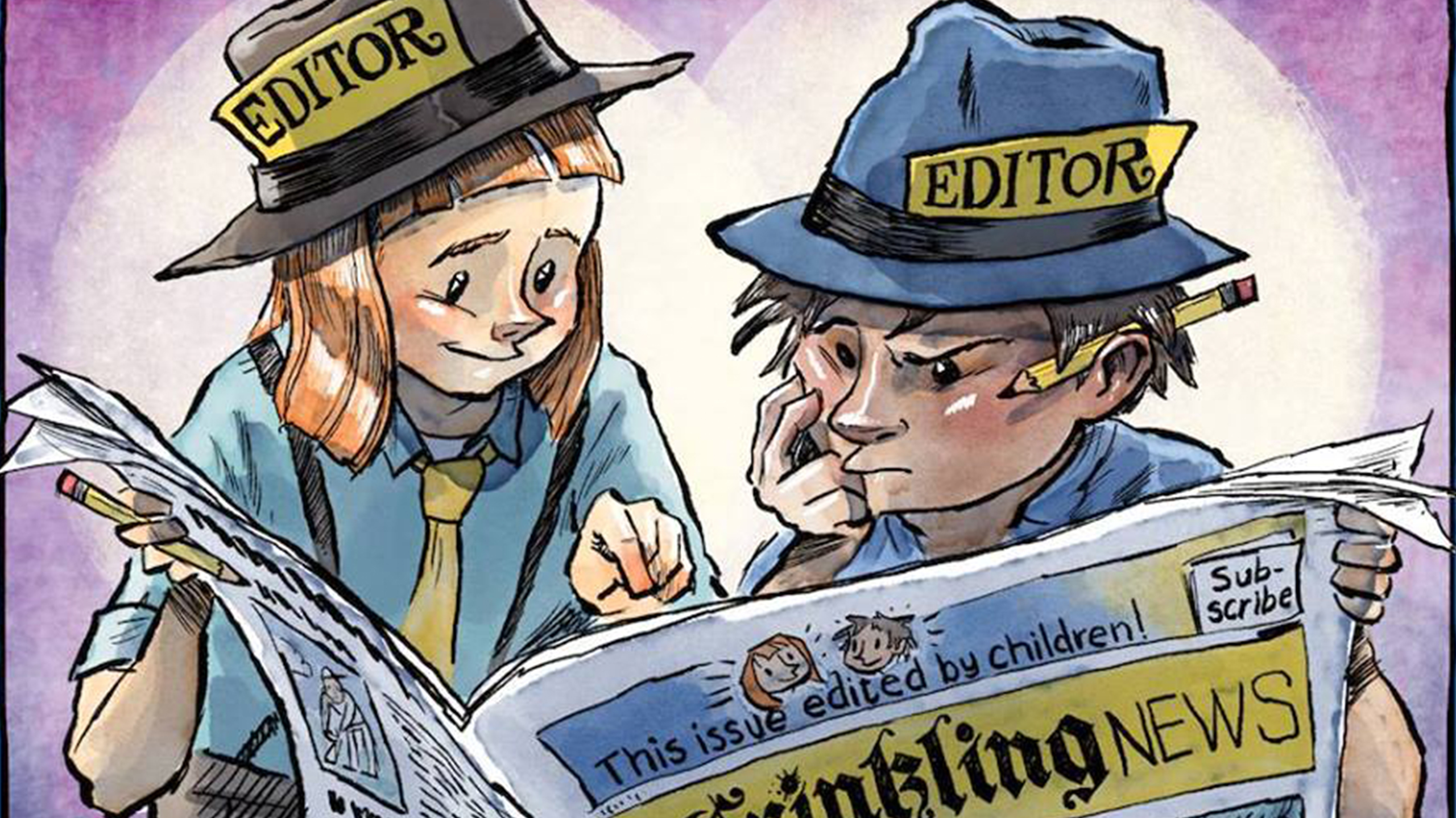Posts Tagged: Saffron Howden


Why Our Kids Desperately Need Crinkling News
I started kindergarten in 1999.
That makes me part of the last generation to be in school in two different millennia. But that’s something I didn’t realise until much later.
Here are a few of the things I remember from 1999: my mum and her friends’ brightly coloured thick knitwear dresses, a pair of red overalls I loved to death, and the ABC TV reports on United Nations peacekeeping operations in East Timor.
No really. That’s the extent of my pre-millennium memory.
The sound of the ABC nightly news theme still brings those feelings back to me. So vivid was my connection, that in my mind, it has remained the soundtrack to East Timor.
My dad says he remembers how often I would ask about the ‘war’ in East Timor.
How many people had been hurt? How will it affect Australia?
I asked anyone who’d care to listen. My kindergarten teacher eventually told my parents I had a morbid fascination that was frightening the other kids in my class.
Consequently, I didn’t have too many friends in kindergarten. Not to worry, I soon forgot about East Timor.
Who could think of such triviality anyway, when the dreaded Millennium Bug loomed?
I was terrified of the Millennium Bug.
I was convinced I would die of it. Whatever it was, I wasn’t quite sure. I knew it would be a painful death. And seven years old was far too young to die.
But no, I did not die.
A year later, I would wish I had died in the Millennial Bug, though.
I was eight years old when two planes brought New York’s Twin Towers to the ground.
My teacher wouldn’t let us talk about it. I understand now, she was just as confused as us kids. She didn’t know how to process it either. But I needed to talk about it.
For two weeks, I was afraid to sleep.
I cried a lot. I woke up in cold sweats. I saw replays on television, I heard reports on the radio, and they played unendingly through my brain.
I was terrified.
And I had no-one to talk to about it.
My parents did their best to reassure me. I suspect they worried about the amount of ‘adult news’ I was consuming. But how could they stop me?
I was 10 years old when the internet was installed in our school library.
And suddenly I had an almost unfiltered access to all the horrors the world over.
I was very lonely and confused throughout my years at school. I had no way to make sense of what seemed to be an incredibly hostile world.
Through high school and university, I learnt better ways to cope with the brutality of it all. At least, I learnt more effective ways to hide my fear.
But then, when I finished university, a faint glimmer of hope was allowed to grow within me, perhaps for the first time in my life.
It was ignited and fanned by Saffron Howden, and the incredible team of journalists at Crinkling News.
Crinkling News is Australia’s only national newspaper for kids. It deals with the news that excites, frightens, shocks or confuses our nation’s young people.
It makes sense of all the things that made me so frightened as a child.
I met Crinkling‘s editor, Saffron when I was just weeks out of university. She had her toddler daughter with her.
She would never have to endure the intense loneliness and fear I felt at her age. She would have Crinkling News.
So, when I write, I think of that toddler as I remember her, and I think of my primary school self. About the sleepless nights, the silent pain, the many tears, that characterised my childhood.
And I think how fortunate are the kids of Australia today, that they have a team of people who are dedicated to explaining the world and allaying their fears.
Perhaps, if Crinkling News was around when I was in primary school, I would not have felt such unspeakable loneliness. Perhaps I would have been better equipped to understand the world. Perhaps I would have seen some beauty alongside the pain.
But now, the kids of Australia could be left without this hope.
Crinkling News has announced it will close its doors next week if it cannot achieve critical funding.
Crinkling News is not only crucial for informing the next generation of world leaders, it is potentially life-saving. And I speak through truckloads of my own experience.
I refuse to let this be the end!
Update: Crinkling News achieved its funding goal with time to spare. Thank you to all who contributed!
But it is always a good time to subscribe to the national newspaper for kids!